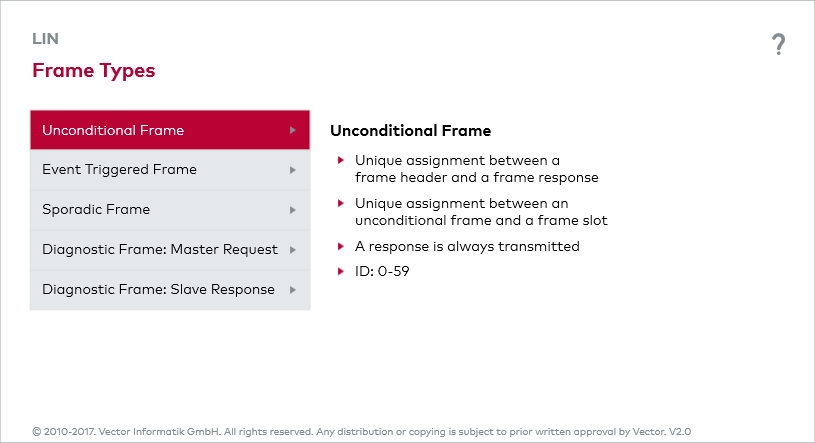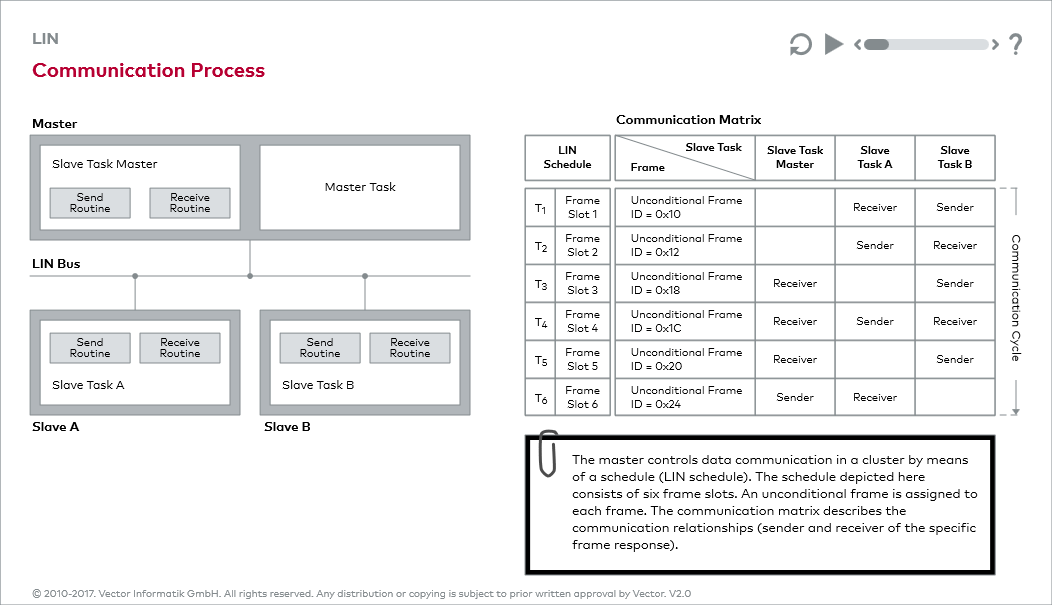Unconditional Frame
The Standard Frame
The unconditional frame is typically used to transmit useful data. This message type corresponds to the standard frame, which is used without any additional condition. All other types are only used in special cases.
Unique Response
The unconditional frame consists of a header and a response. The master transmits the header onto the bus as a request. Then a defined slave answers with the response. A Slave Task recognizes, based on the identifier (ID), whether it needs to send a response. The slave task of the master can also be addressed by the identifier and send the response. Exactly which node sends the associated response is described in the LDF.
No Collisions
Since an unconditional frame consists of a unique relationship between header and response, no collisions can occur during operation. A slot may only be used by one node. Unconditional frames are therefore ideally suited for periodic data transmission, in which the time when a message appears on the bus is predictable.



